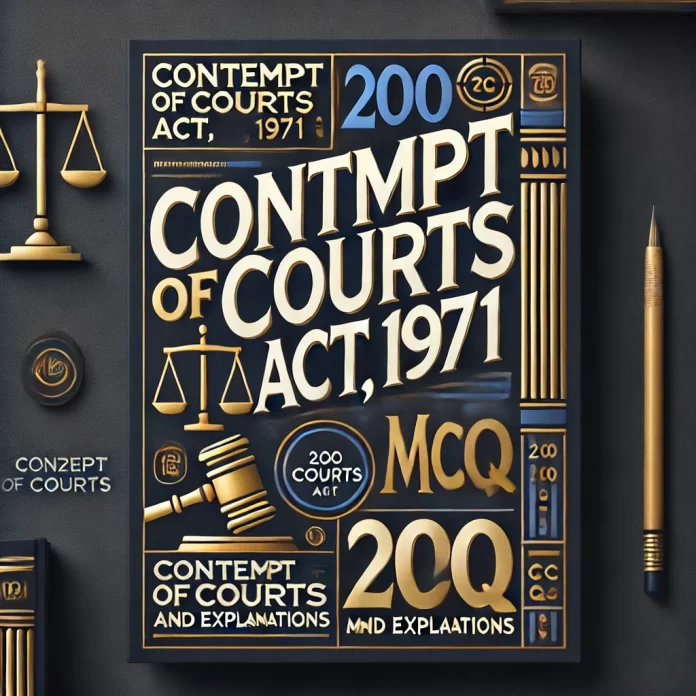Short Notes on the Contempt of Court Act, 1971
Key Provisions:
- Definitions (Section 2):
Civil Contempt: Willful disobedience of a court’s order or breach of an undertaking (Section 2(b)).
Criminal Contempt: Scandalizing the court, interfering with judicial proceedings, or obstructing justice (Section 2(c)).
- Defenses (Section 13):
Truth, if made in public interest and in good faith.
Unconditional and bona fide apology.
- Jurisdiction:
Supreme Court: Article 129 of the Constitution empowers it as a court of record to punish for contempt.
High Courts: Article 215 grants similar powers.
- Exceptions:
Fair and accurate reporting of judicial proceedings (Section 4).
Fair criticism of judicial acts (Section 5).
- Punishment (Section 12):
Imprisonment up to 6 months, fine up to ₹2,000, or both.
- Procedural Safeguards (Section 15):
Proceedings can be initiated suo motu or with the Advocate General’s/Attorney General’s consent.
- Landmark Cases:
E.M. Sankaran Namboodiripad v. T. Narayanan Nambiar: Defined the balance between free speech and contempt.
In Re: Arundhati Roy: Established limits of criticism against courts.
Segment 1: MCQs (1–10)
- What does Section 2(b) of the Contempt of Court Act define?
a) Criminal contempt
b) Civil contempt
c) Judicial contempt
d) Procedural contempt
- Which of the following acts constitute criminal contempt under Section 2(c)?
a) Disobedience of court orders
b) Scandalizing the court
c) Fair criticism of judgments
d) Filing frivolous lawsuits
- Under Article 129, which court has the power to punish for contempt?
a) District Court
b) High Court
c) Supreme Court
d) Subordinate Court
- What is the punishment for contempt under Section 12 of the Act?
a) Imprisonment of up to 3 months
b) Fine of ₹5,000
c) Imprisonment of up to 6 months or fine up to ₹2,000 or both
d) No punishment is specified
- Which defense is available under Section 13 of the Act?
a) Justification by truth in the public interest
b) Personal opinion
c) Denial of authority
d) Filing a counter-suit
- Which of the following is protected under Section 4 of the Act?
a) False reporting of judicial proceedings
b) Accurate and fair reporting of judicial proceedings
c) Reporting prohibited court orders
d) Scandalizing court judgments
- What is NOT considered contempt under the Act?
a) Disobedience of court orders
b) Bona fide criticism of judicial decisions
c) Obstruction of court proceedings
d) Scandalizing the judiciary
- Who can initiate contempt proceedings as per Section 15?
a) Any aggrieved individual
b) The Advocate General or Attorney General
c) The Chief Justice of India
d) Any judicial officer
- Which article empowers High Courts to act as courts of record?
a) Article 129
b) Article 215
c) Article 226
d) Article 227
- Which case upheld the constitutional validity of contempt laws in India?
a) Re Harijai Singh
b) E.M. Sankaran Namboodiripad v. T. Narayanan Nambiar
c) Jhareswar Prasad Paul v. Tarak Nath Ganguly
d) In Re: Arundhati Roy
